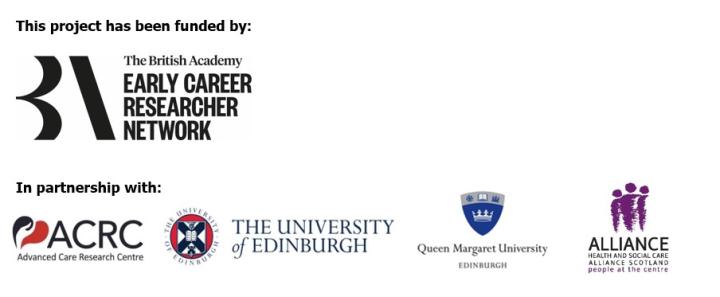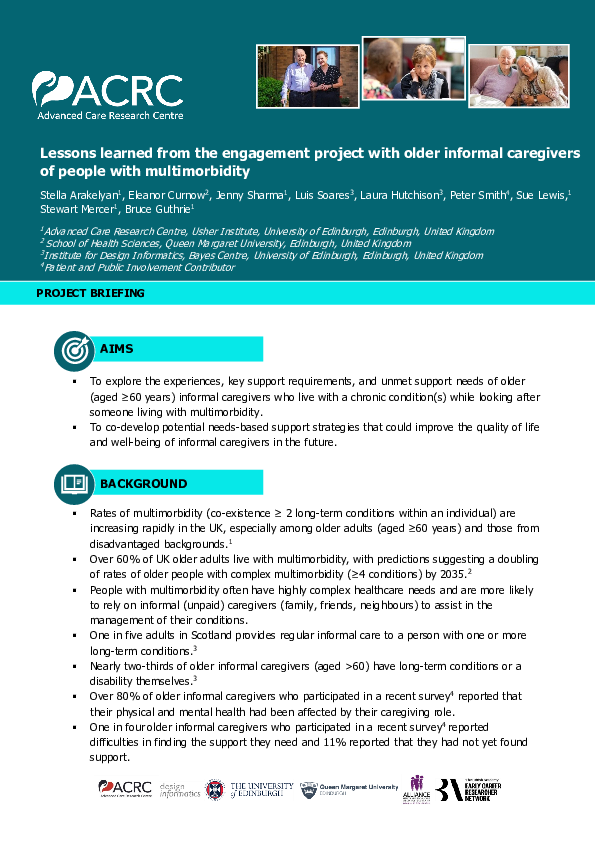Supporting Older Caregivers of People with Multiple Long-term Conditions
Co-designing Future Implementation Research Priorities and Assistive Technology Innovations Targeted at Supporting Older Caregivers of People with Multiple Long-term Conditions
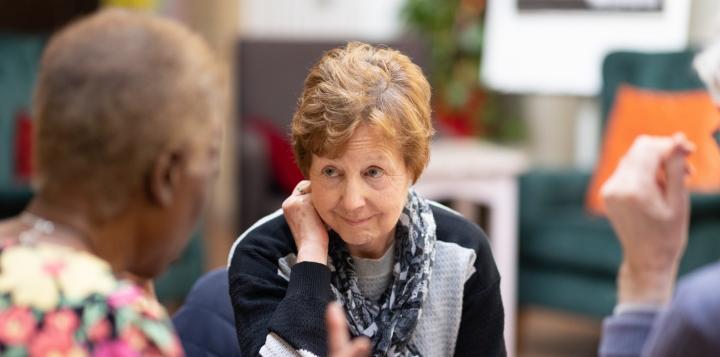
Dr Stella Arakelyan leads on a seed project funded by the British Academy Early Career Researcher Network which seeks to co-develop need-based support strategies and/or assistive technologies to help older caregivers of people with multiple long-term conditions to live well.
One in five adults in Scotland provides regular unpaid care to a person with ≥1 long-term condition(s). Nearly two-thirds of older unpaid carers (aged >60) have long-term conditions or a disability themselves, which put them at increased risk of poor health outcomes. These commonly result from practical challenges navigating fragmented services, managing multiple appointments and medications, reduced social connectedness, and struggles to cope with informal caregiving for people with multiple long-term conditions (MLTCs) who have complex care needs. Despite performing essential roles in the lives of people with MLTCs and economically contributing to UK society, there is limited needs-based support strategies or assistive technologies available specifically for this caregiver group.
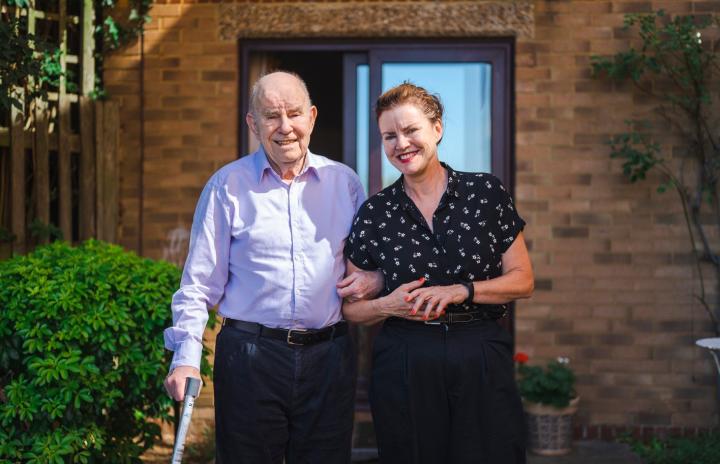
This collaborative and multi-disciplinary project aims to involve older carers (aged >60) with ≥1 long-term condition(s) who provide unpaid care to people with MLTCs to explore their experiences, key support requirements, and unmet needs and to co-develop potential need-based support strategies and/or assistive technologies that could improve quality of life and wellbeing of unpaid carers in the future.
Project Outputs - Project Briefing
Project Gallery
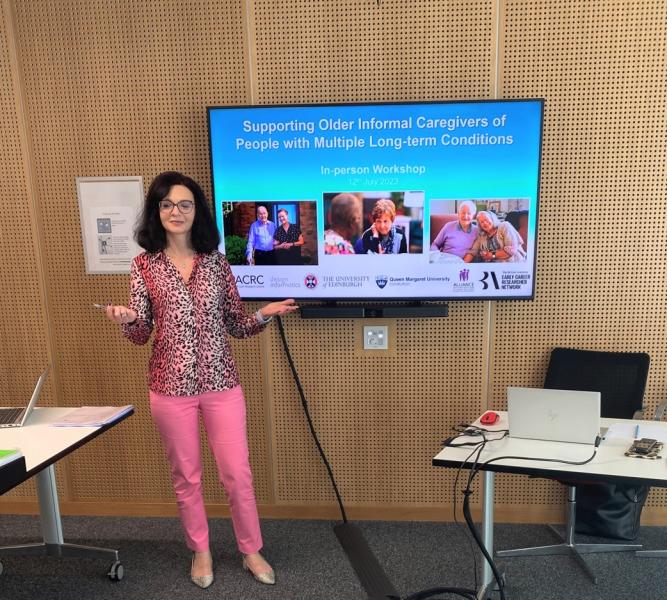
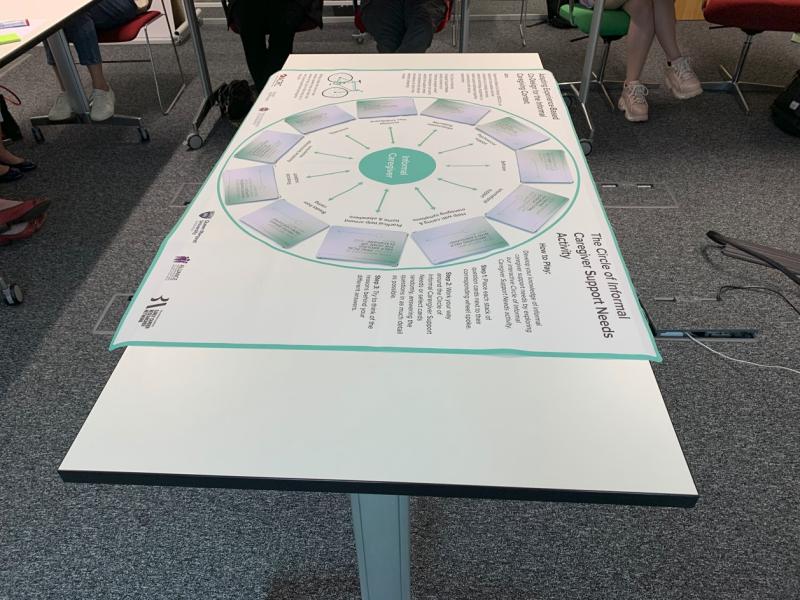
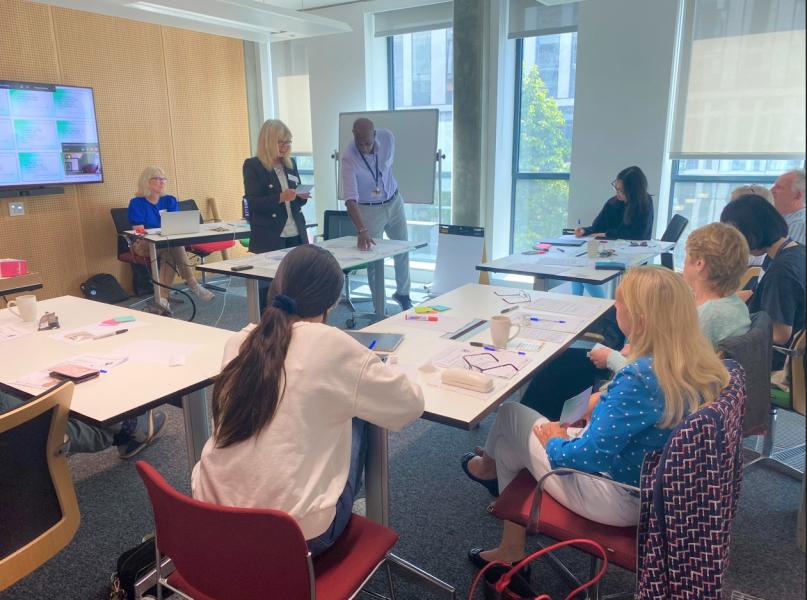
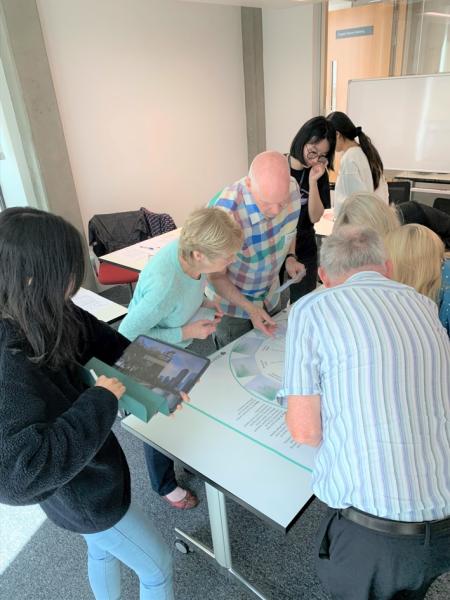
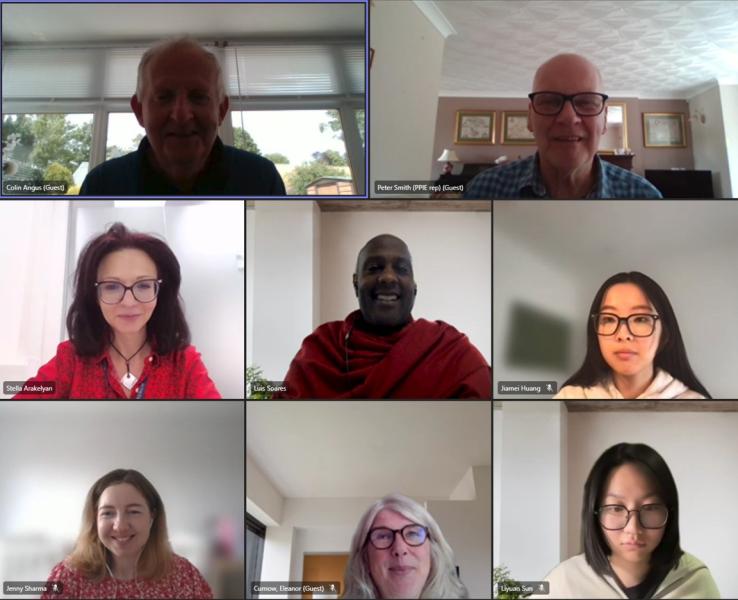
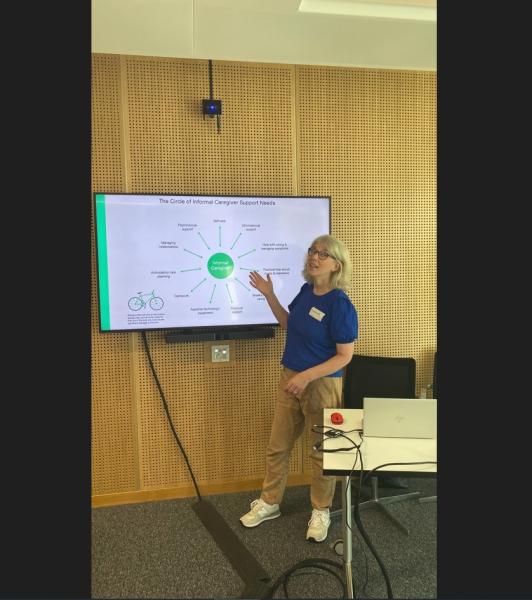






Would you like to help support our project? See below for more details
Do you live with more than one long-term condition and care for someone also living with multiple long-term conditions?
One in five adults in Scotland provides regular unpaid care to a person with one or more long-term conditions, and nearly two-thirds of older unpaid carers (aged >60) have long-term conditions or a disability themselves. We want to find out what support these people need to help them live well.
How can I get involved?
At the University of Edinburgh and Queen Margaret University, we want to hear about the experiences, key support requirements, and unmet needs of people who are:
-
older adults (aged 60+ years old)
- live with one or more long-term conditions
- provide unpaid care to person with multiple long-term conditions
- live in Central Scotland
We would like to work with 8-10 individuals who consider themselves to be in the above group to help us co-develop potential need-based support strategies and/or assistive technologies that could improve quality of life and wellbeing of unpaid carers in the future. We will use these insights and co-developed support strategies to inform future research and develop services that will help older informal caregivers of people with multiple long-term conditions to live well in Scotland.
What is the time commitment?
We would like you to complete a short on-line survey to help us map the main areas of your unmet needs. The survey should take no more than 10 minutes to complete, and can be accessed by clicking on this link: https://edinburgh.onlinesurveys.ac.uk/supporting-older-caregivers-of-people-with-multiple-long-t
We then want to hold two workshops with the same group of people. The first workshop will be online and last for 90 minutes, with a 10-minute screen-break halfway through. You will be invited to discuss the survey findings, and further share your experiences and support needs of caring for someone (e.g., family member, relative, and friend) with multiple long-term conditions.
The second workshop will take place in Central Edinburgh (at the University of Edinburgh) and last for 2 hours, with a 15-minutes comfort break halfway through. During the second workshop, you will work with university staff and design students to draw or create cardboard models of technology-based innovations or support initiatives that you would like to see in the future. You will then be invited for afternoon tea at the Dome with your fellow workshop attendees.
Who is organising and funding the project?
This project has been organised by the research team at the University of Edinburgh and Queen Margaret University. The project is being funded by the British Academy Early Career Researcher Network.
Payment and expenses
You will be provided with a £25 M&S gift card as a thank you for joining the online workshop. Travel to the in-person workshop in Edinburgh can be booked for you in advance or reimbursed, up to a maximum of £30 per person. Four participants who provide unpaid care for a person with complex health conditions (more than four long-term conditions which substantially limit a person’s functional abilities in daily living) can receive financial support for arranging 4.5 hours of paid care (£12 per hour) to participate in the in-person workshop in Edinburgh.
How will I be supported?
Jenny Robertson (Public Involvement and Engagement Co-ordinator at the University of Edinburgh) will be available to answer questions and will support you throughout.
If you want to be involved in the project, please contact Jenny Robertson by email: jenny.l.robertson@ed.ac.uk
What should I do if I have more questions?
If you want to learn more about the project, please contact one of the lead investigators Dr Stella Arakelyan by email: stella.arakelyan@ed.ac.uk or Dr Eleanor Curnow at ecurnow@qmu.ac.uk.
